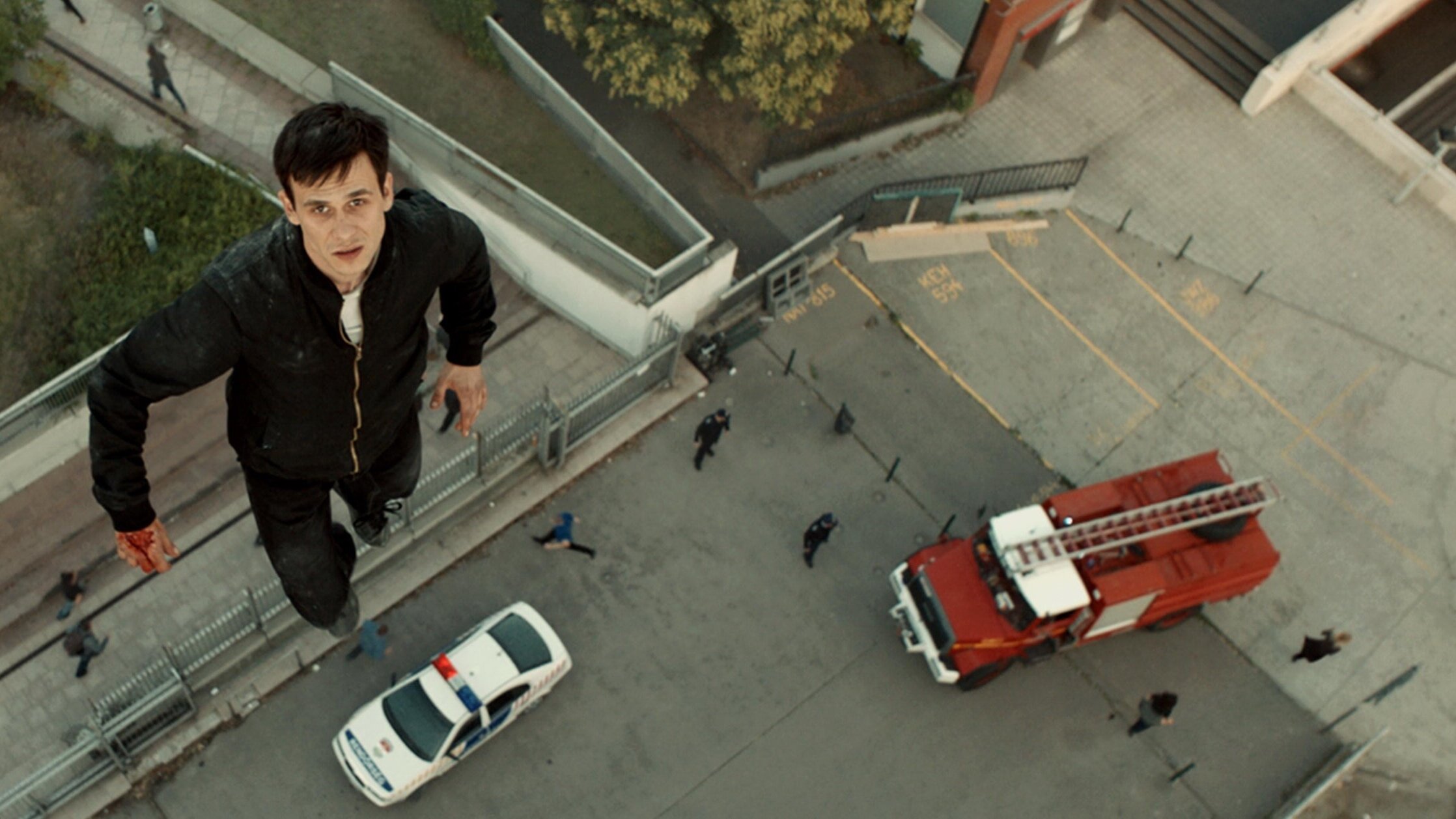Jupiter's Moon
Contemporary Budapest as viewed from an unexpected angle.
Zsombor Jéger
If you are the kind of film buff who relishes directorial skills, you might well wish to look out for this very curious Hungarian work directed by Kornél Mundruczó. It starts off compellingly with minimal dialogue but with images that capture the very essence of what it feels like to be a Syrian refugee hoping to leave Hungary on a vessel bound for Europe. A border patrol will arrive to overturn the expectations of these people and Aryan Dachni (Zsombor Jéger), travelling with his father, will be cornered and shot. But at this very point the film’s naturalistic tone changes completely and mysteriously: instead of dying Aryan levitates spectacularly before falling back to earth and then finds himself in a camp for illegal immigrants where he realises that he now has the power to fly. If that sounds odd, what follows becomes even odder and the film, written by Mundruczó and Kata Wéber, never adequately explains itself. In consequence anyone who likes a straightforward story would be well advised to stay away.
In some respects it is easier to say what Jupiter’s Moon isn’t rather than what it is. When taken up by a doctor (Merab Nanidze) who is out to get money from patients and feels that he can use Aryan to assist him to this end, Aryan’s supernatural powers continue to feature, yet this never feels like an adventure tale akin to those based on comic books. Instead, we are closer to a realm in which the cynical outlook of a corrupt society is challenged by the possibility that God exists despite everybody’s lack of faith. Aryan may not understand his new-found powers but he is certainly described as being an angel and in society’s rejection of him he is not without affinities with Christ (and, indeed, in passing his father is said to be a carpenter). But, if Aryan is in fact God’s messenger, it makes little sense that he doesn’t understand this and some rather banal dialogue near the close about our modern world taking a horizontal view of things and failing to look upwards hardly turns Jupiter’s Moon into a profound religious statement. However, the remarkable revelation in the film’s end credits that it has been blessed by Rabbi Darvas may lend support to the notion that, however far it may have fallen short, the film did have that intention. Whatever one makes of this strange work, the fact that a shoot-out at the film's climax has the effect of bringing us down to earth underlines just how extraordinary it has been up to that point.
I would certainly expect many audiences to emerge from this piece feeling perplexed despite the fact that the casting of the leading characters is admirable (Jéger may not be Syrian but he has a presence ideally suited to his role expressing an apt naivety yet being decidedly empathetic throughout). Even so, the glory of the film, admirably photographed in ’Scope and colour by Marcell Rév, lies in its technical brilliance as evidenced by the movement and placing of the camera by Kornél Mundruczó. His total control as director keeps one riveted throughout even as one struggles to decide exactly what sort of a tale he thought he was telling.
MANSEL STIMPSON
Cast: Merab Nanidze, Zsombor Jéger, György Cserhalmi, Mónika Balsai, Ákos Barkas, Péter Haumann, Judit Meszléry, Enikö Mahalik.
Dir Kornél Mundruczó, Pro Viola Fügen, Michael Merkt, Viktória Petrányi and Michael Weber, Screenplay Kornél Mundruczó and Kata Wéber, Ph Marcell Rév, Pro Des Márton Ágh, Ed Dávid Jancsó, Music Jed Kurzel, CostumesSabine Greunig.
KNM/Match Factory Productions/Proton Cinema/Pyramide Films/ZDF/Arte-Curzon Artificial Eye.
129 mins. Hungary/Germany/France. 2017. Rel: 5 January 2018. Cert. 15.


